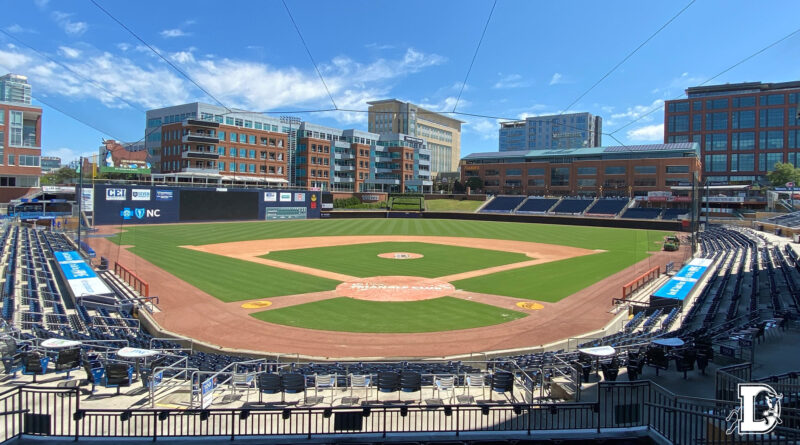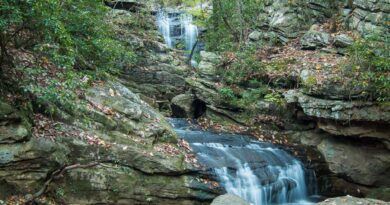21 Fun Facts About Durham North Carolina
Durham, North Carolina, is a vibrant city that seamlessly blends history, culture, and innovation. Nestled in the heart of the Piedmont region, Durham offers a captivating mix of old-world charm and modern dynamism.
Known for its prestigious universities, Duke University and North Carolina Central University, Durham boasts a thriving academic community that fosters intellectual growth and groundbreaking research. The presence of these institutions contributes to a diverse and intellectually stimulating atmosphere.
Durham’s rich history is evident in its well-preserved tobacco warehouses and historic districts, which pay homage to its roots as a tobacco and textile hub. The American Tobacco Historic District, once a bustling industrial area, has been revitalized and transformed into a vibrant entertainment and dining destination, featuring a variety of restaurants, bars, and entertainment venues.
Beyond its history, Durham is renowned for its culinary scene, where food enthusiasts can explore a diverse array of cuisines, from Southern comfort food to international flavors. The city’s culinary landscape reflects its multicultural population, creating a fusion of tastes that delights locals and visitors alike.
Nature lovers can escape the urban bustle and explore the natural beauty of Durham. The city is surrounded by picturesque parks, including the Eno River State Park and Duke Forest, offering opportunities for hiking, picnicking, and enjoying the great outdoors.
In recent years, Durham has become a hub for innovation and entrepreneurship, particularly in the fields of technology, healthcare, and research. The American Underground, a startup incubator located in the heart of downtown, has fostered a thriving ecosystem for innovation and creativity, attracting companies and talent from around the globe.
Durham, North Carolina is a vibrant and diverse city with a rich history and culture. Here are 21 fun facts about Durham that you may not know:
1. Durham Is Named After Dr. Bartlett Durham
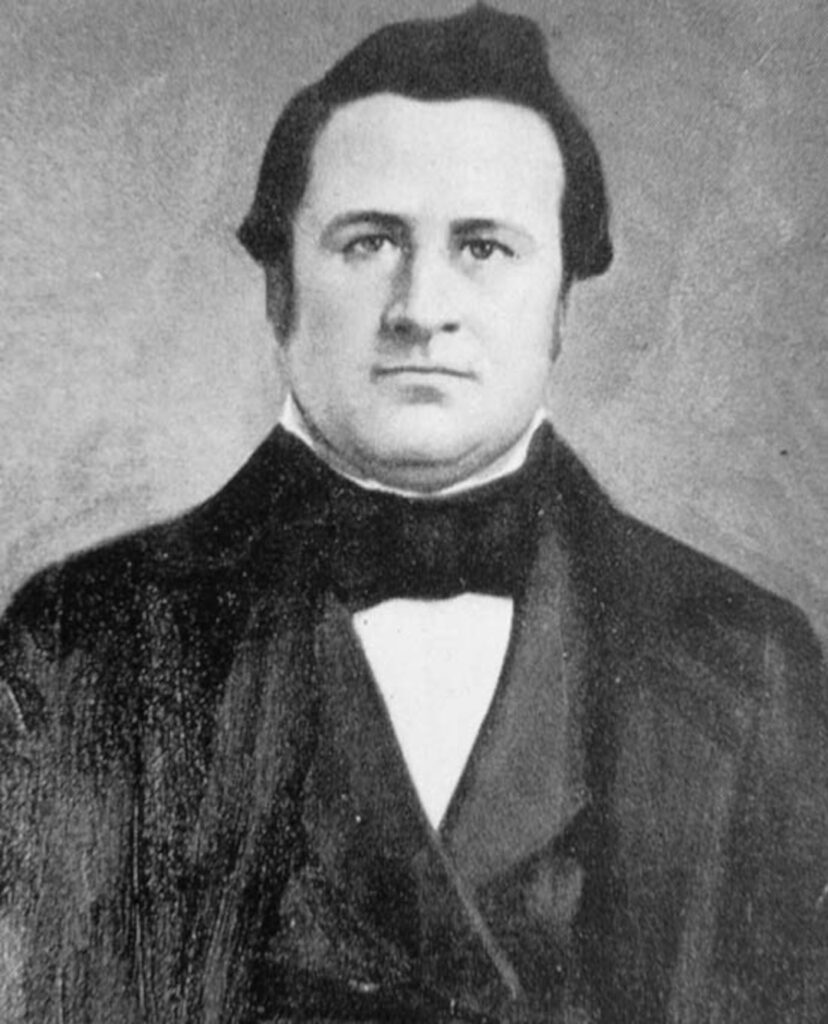
Dr. Bartlett Durham, the esteemed founder of Durham, is hailed as a visionary leader who laid the foundation for a city that thrives on innovation, diversity, and community engagement. With a deep understanding of urban development, Dr. Durham strategically planned the growth and prosperity of Durham, shaping it into a dynamic hub of industry, education, and cultural richness. His unwavering commitment to social progress and inclusivity has created a city that values diversity and equality. Dr. Bartlett Durham’s pioneering spirit and philanthropic endeavors continue to shape the landscape of Durham, leaving an indelible mark on its vibrant history and promising future.
2. Durham Is Nickenamed The “Bull City”
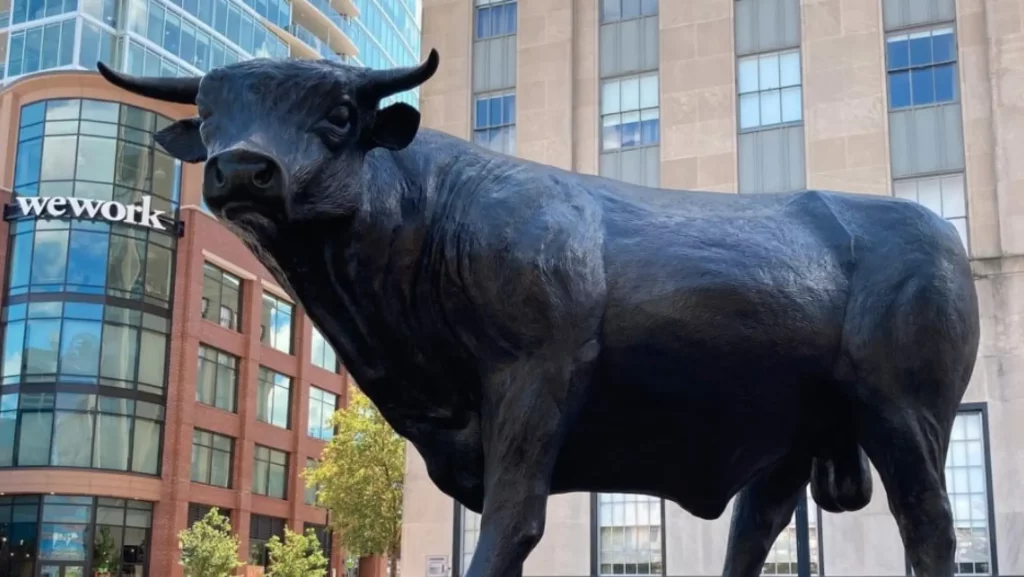
Durham, aptly nicknamed “Bull City,” is a vibrant and historic city with a story deeply rooted in its industrial past. The moniker “Bull City” originated from the prominence of the Bull Durham Tobacco Company, which played a pivotal role in shaping the city’s identity.
In the late 19th century, Durham was a booming tobacco town, and the Bull Durham Tobacco Company emerged as a leading manufacturer of tobacco products. Its flagship product, Bull Durham Smoking Tobacco, gained widespread popularity and recognition, becoming a symbol of the city’s economic prosperity.
The Bull Durham Tobacco Company’s iconic bull logo adorned its packaging, billboards, and advertisements, becoming synonymous with the city itself. As Durham grew and thrived, the nickname “Bull City” naturally emerged, paying homage to the company that played a significant role in the city’s development.
Today, the legacy of the Bull Durham Tobacco Company lives on, and the nickname “Bull City” serves as a proud reminder of Durham’s industrial heritage and entrepreneurial spirit. It has become an endearing symbol of the city’s resilience, innovation, and vibrant community, encapsulating Durham’s unique character and sense of pride.
3. Durham Is Home To Duke University
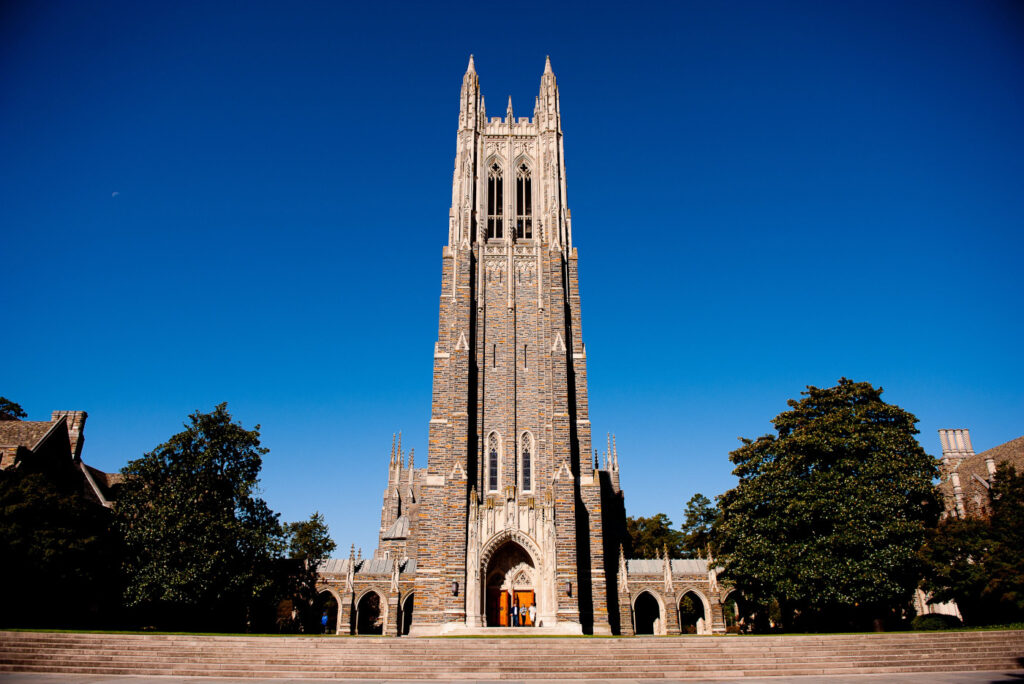
Duke University, a prestigious institution renowned for its academic excellence and rich traditions, has a history deeply intertwined with the vision and philanthropy of the Duke family. Founded in 1838 as Trinity College, the institution began as a small Methodist-affiliated school in Randolph County, North Carolina.
In the early 20th century, the university underwent a transformative phase when James B. Duke, a prominent industrialist and philanthropist, sought to establish an enduring legacy for his family. Inspired by his father’s belief in the power of education, James B. Duke generously endowed Trinity College, which subsequently changed its name to Duke University in 1924 in honor of his family’s contributions.
Under the leadership of James B. Duke’s daughter, Mary Duke Biddle, and her husband, Anthony J. Drexel Biddle Jr., the university continued to evolve and expand. Significant investments were made to enhance academic programs, faculty recruitment, and campus infrastructure, solidifying Duke University’s reputation as a leading research institution.
Duke University’s commitment to excellence in education and research has propelled it to the forefront of numerous academic disciplines. The university boasts renowned schools and programs, including the Duke University School of Law, the Pratt School of Engineering, the Fuqua School of Business, and the Duke School of Medicine.
Beyond its academic achievements, Duke University has also been a catalyst for social progress and community engagement. The institution has actively championed diversity and inclusion, striving to create an environment that fosters equity and embraces students from all walks of life. Its commitment to service and civic engagement has led to numerous community initiatives and partnerships that have had a positive impact locally and globally.
Today, Duke University stands as a testament to the transformative power of philanthropy and the pursuit of knowledge. With a distinguished faculty, a vibrant student body, and a commitment to innovation and social responsibility, Duke University continues to shape the future through its groundbreaking research, rigorous academics, and unwavering dedication to its core values.
4. Durham Was A Leading Textile Manufacturing Center
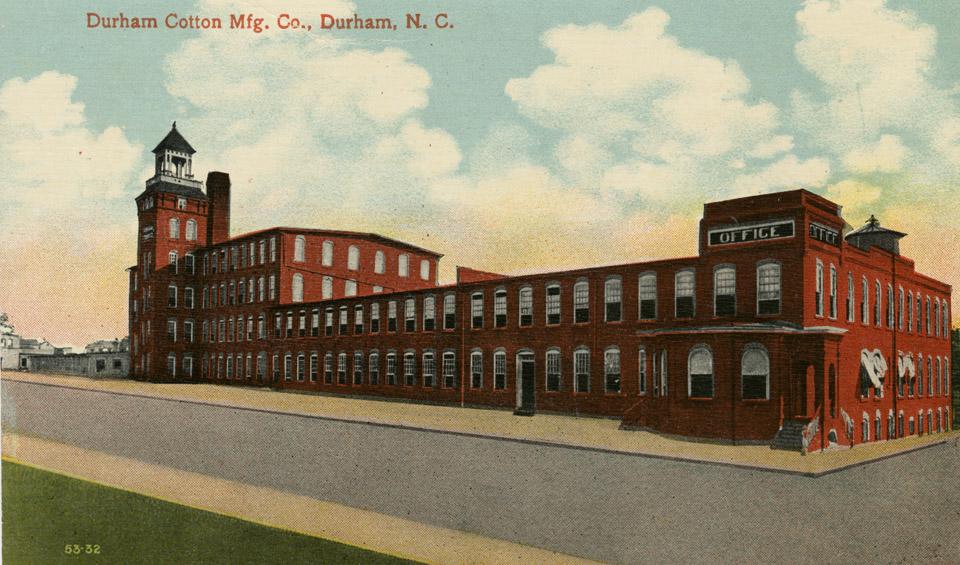
Durham, once a bustling textile manufacturing center, played a significant role in the textile industry’s growth in the region. From the late 19th to the mid-20th century, the city’s textile mills produced a wide array of fabrics, driving economic prosperity and shaping Durham’s identity. With access to essential resources and a skilled workforce, Durham’s mills thrived, contributing to the city’s growth and leaving a lasting legacy of industrial heritage. While the textile industry has evolved over time, Durham’s history as a textile manufacturer remains an integral part of its story.
5. Durham Is Home To The Durham Bulls Minor League Baseball Team

The Durham Bulls, a beloved minor league baseball team, have long been an integral part of Durham’s sports and cultural landscape. Founded in 1902, the Bulls have a rich history and have consistently delighted fans with their exciting play and commitment to the community. The team’s home, the Durham Bulls Athletic Park, is a state-of-the-art facility that provides an immersive experience for spectators. The Bulls’ success on the field, coupled with their vibrant fan base, has garnered national attention and helped solidify Durham’s reputation as a passionate baseball town. Whether it’s enjoying the crack of the bat or the electric atmosphere, attending a Durham Bulls game is a quintessential Durham experience for sports enthusiasts and families alike.
6. Durham Was An Important Center Of The Civil Rights Movement

The Civil Rights Movement in Durham, North Carolina, was a pivotal chapter in the struggle for racial equality and social justice. Beginning in the 1950s and gaining momentum throughout the 1960s, the movement in Durham sought to dismantle the deeply entrenched systems of segregation and discrimination that plagued the city.
Durham, with its vibrant African American community and strong tradition of activism, became a significant battleground in the fight for civil rights. Local leaders, activists, and organizations played a crucial role in challenging racial injustices and demanding equal rights for all residents.
One of the defining moments of the Civil Rights Movement in Durham was the Royal Ice Cream Sit-In of 1957. A group of students from North Carolina Central University, led by Ezell Blair Jr. (later known as Jibreel Khazan) and other members of the Student Nonviolent Coordinating Committee (SNCC), staged a peaceful protest at the segregated Royal Ice Cream parlor. Their brave act of resistance and the subsequent arrest and conviction of the protesters drew national attention, highlighting the urgent need for desegregation.
The movement in Durham also witnessed the influential leadership of Dr. Martin Luther King Jr., who visited the city multiple times to rally support for the cause. His speeches and advocacy inspired many and galvanized the local community to continue the fight for equal rights.
Through sit-ins, boycotts, marches, and legal challenges, activists in Durham gradually dismantled many discriminatory practices. They fought for equal access to public facilities, desegregation of schools, fair employment practices, and the right to vote. Their relentless efforts, along with the support of national civil rights organizations, ultimately led to significant victories and paved the way for lasting change.
Today, Durham stands as a symbol of the courage, resilience, and determination exhibited by its citizens during the Civil Rights Movement. It serves as a reminder of the progress made and the ongoing work required to ensure equality and justice for all.
7. Parrish Street Was The First “Black Wall Street”
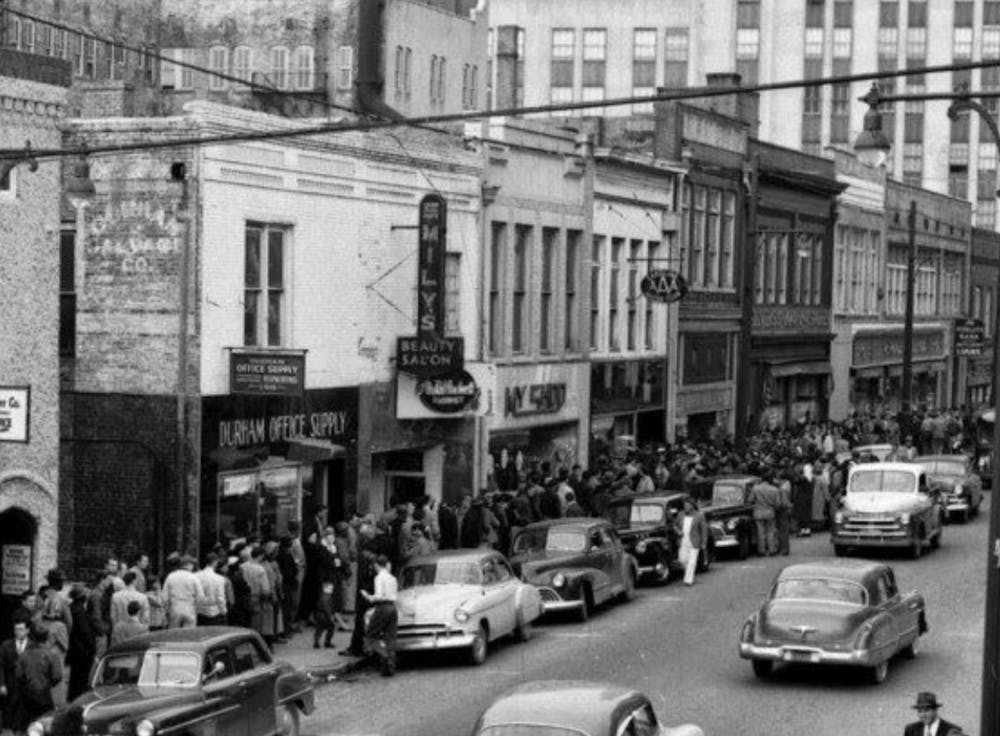
Durham, North Carolina’s Black Wall Street was a thriving African American business district that emerged in the early 20th century. During a time of segregation and limited opportunities for black entrepreneurs, this vibrant community became a testament to black excellence and economic resilience.
Centered around Parrish Street, the heart of Durham’s Black Wall Street, the district was home to a wide range of businesses, including banks, insurance companies, law firms, restaurants, theaters, and retail stores. Black entrepreneurs and professionals established successful enterprises, generating wealth and fostering a sense of pride and self-sufficiency within the community.
One of the most prominent figures associated with Black Wall Street was John Merrick, a former slave who co-founded the North Carolina Mutual Life Insurance Company in 1898. Under Merrick’s leadership, the company became one of the largest and most successful black-owned businesses in the nation, providing financial security and opportunities for countless individuals.
Another influential figure was C.C. Spaulding, who served as the president of the Mechanics and Farmers Bank, one of the few black-owned banks in the country. The bank played a vital role in supporting black businesses and promoting economic empowerment.
Unfortunately, the success and prosperity of Black Wall Street were not immune to the challenges of the time. In 1921, the infamous massacre in Tulsa, Oklahoma, which targeted a thriving black community, created a climate of fear and hostility across the nation. While Durham did not experience the same level of violence, the community faced significant setbacks during the Great Depression and subsequent urban renewal efforts, which led to the decline of the once-thriving district.
Nevertheless, the legacy of Durham’s Black Wall Street endures. It serves as a testament to the resilience and entrepreneurship of the black community, reminding us of the importance of economic empowerment, self-determination, and the continued pursuit of equality. The story of Black Wall Street continues to inspire and serves as a call to support and uplift black-owned businesses and communities today.
8. Durham Is Home To North Carolina Central University
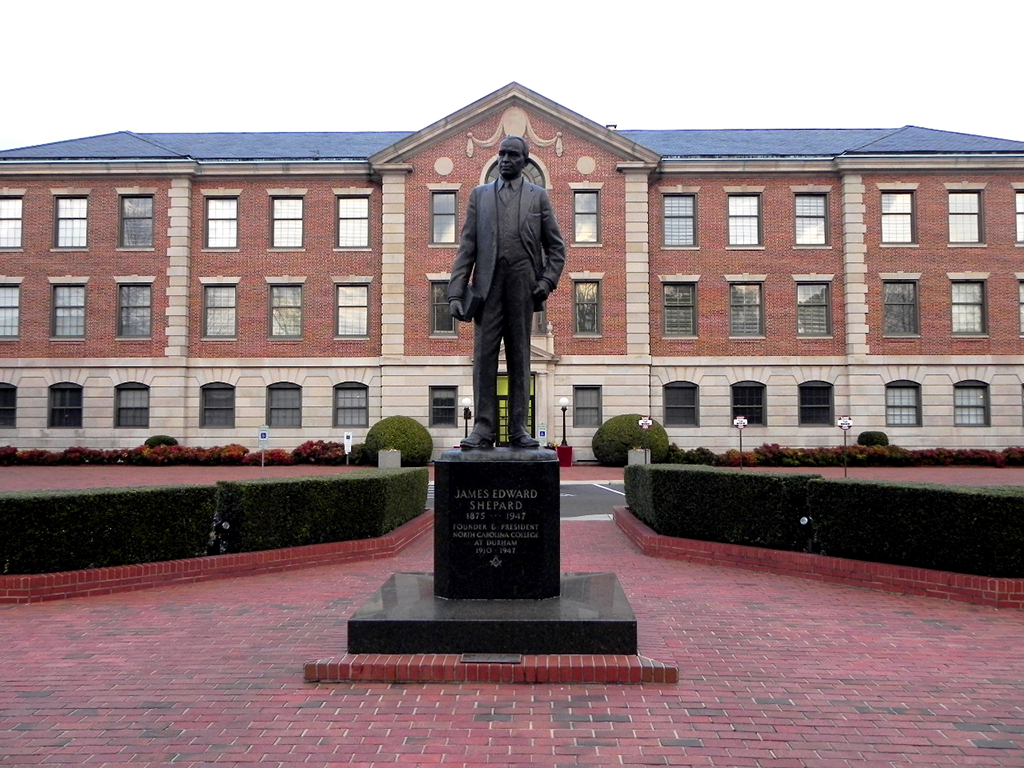
North Carolina Central University (NCCU) in Durham, North Carolina, is a historically black university renowned for its academic excellence, rich cultural heritage, and commitment to social justice. Established in 1910 as the National Religious Training School and Chautauqua for the Colored Race, NCCU has played a pivotal role in empowering generations of students and serving as a beacon of opportunity in the region.
Located in the heart of Durham, NCCU has a strong tradition of nurturing leaders and fostering intellectual growth. The university offers a wide range of undergraduate, graduate, and professional programs across various disciplines, including the arts, sciences, business, education, law, and nursing. With dedicated faculty and state-of-the-art facilities, NCCU provides a supportive and transformative learning environment that prepares students for success in their chosen fields.
NCCU has a rich history of activism and community engagement. It has been a catalyst for social change, producing trailblazers in civil rights, law, politics, and the arts. Notable alumni include civil rights attorney Julius L. Chambers, former United States Congressman G.K. Butterfield, acclaimed jazz musician Branford Marsalis, and celebrated author and poet Maya Angelou.
The university’s commitment to social justice is exemplified by its School of Law, which has long been at the forefront of advancing civil rights and equal opportunity. NCCU School of Law graduates have made significant contributions to legal scholarship and advocacy, fighting for justice and equality both locally and nationally.
NCCU also takes pride in its vibrant campus life and diverse student body. The university offers a range of extracurricular activities, including student organizations, athletics, and cultural events that promote a sense of community, foster leadership skills, and celebrate the university’s African American heritage.
As an integral part of Durham’s educational landscape, NCCU continues to make substantial contributions to the community through research, community service, and partnerships. The university’s commitment to academic excellence, social justice, and community empowerment positions it as a vital institution, shaping the minds of future leaders and making a positive impact both on campus and beyond.
9. Durham Has A Thriving Nightlife And Food Scene
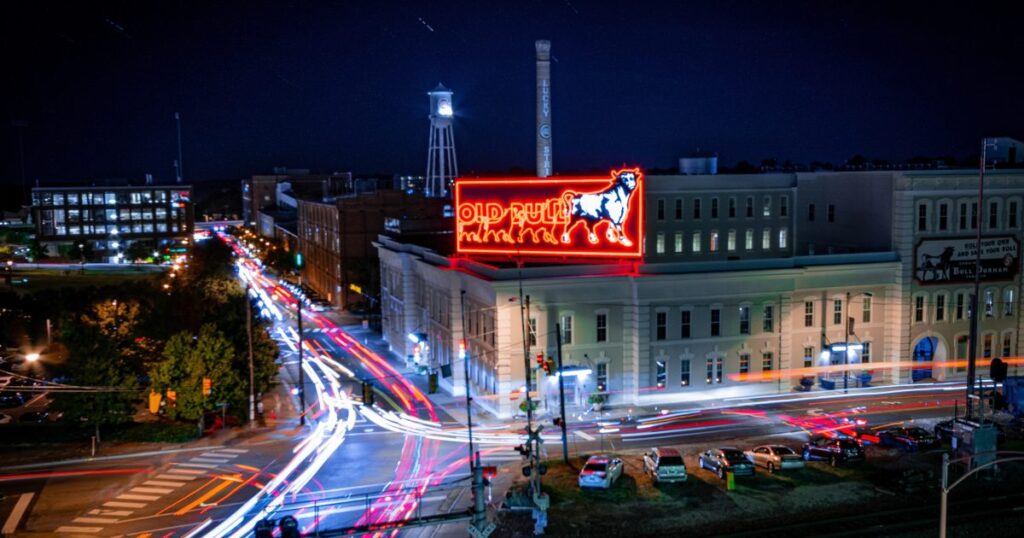
Durham, North Carolina, boasts a vibrant nightlife and food scene that showcases the city’s diverse culinary offerings and thriving entertainment venues. From lively bars and music venues to innovative restaurants and food trucks, Durham has something to satisfy every taste and cater to all preferences.
When it comes to nightlife, Durham has a dynamic array of options. Downtown Durham, particularly the historic American Tobacco Campus and the bustling Durham Central Park area, is a hub of activity. It offers an eclectic mix of bars, pubs, and craft breweries, where locals and visitors can unwind with a refreshing drink and enjoy live music performances. From laid-back establishments with cozy atmospheres to trendy spots with creative cocktails, the nightlife in Durham offers a range of experiences to suit different moods and tastes.
The food scene in Durham is equally impressive, earning the city a well-deserved reputation as a culinary destination. With a focus on farm-to-table and locally sourced ingredients, Durham’s restaurants showcase a diverse array of cuisines, flavors, and culinary traditions. The city has a thriving food truck culture, offering a delightful array of mobile eateries that serve up everything from gourmet burgers and artisanal tacos to international delicacies.
Durham’s dining options cater to a wide range of palates and dietary preferences, with a growing number of restaurants offering vegan, vegetarian, and gluten-free choices. The city also celebrates its Southern roots, with establishments serving up traditional comfort food with a contemporary twist.
In recent years, Durham has garnered attention as a hotspot for innovative and award-winning chefs, earning national recognition for its culinary scene. The city has become a breeding ground for culinary creativity, attracting talented chefs who infuse global influences into their dishes while remaining rooted in Durham’s local food culture.
Beyond its restaurants and bars, Durham hosts a variety of food and drink events throughout the year, such as food festivals, beer tastings, and wine pairings. These events provide opportunities for residents and visitors alike to indulge in the city’s gastronomic delights and experience the vibrant culinary community that Durham has to offer.
Whether seeking a memorable night out on the town or a delectable culinary adventure, Durham’s nightlife and food scene provide a tapestry of flavors, experiences, and cultural delights that showcase the city’s vibrant spirit and culinary prowess.
10. Durham Is Home To The Sarah P. Duke Gardens
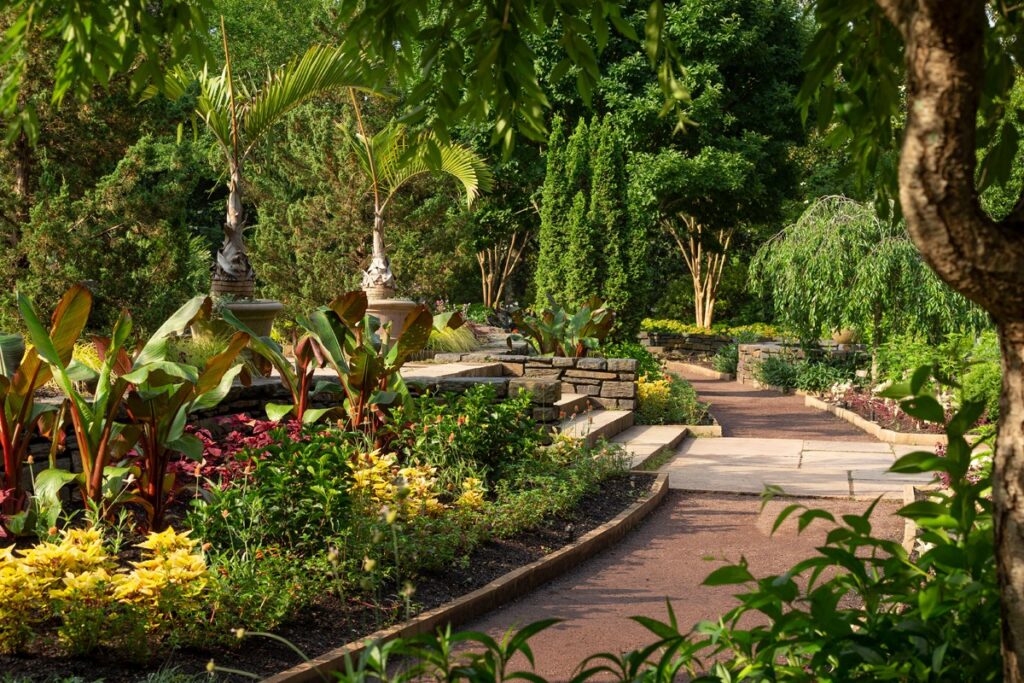
Sarah P. Duke Gardens, nestled within the campus of Duke University in Durham, North Carolina, is a breathtaking oasis that captivates visitors with its natural beauty and serene ambiance. Spanning over 55 acres, the gardens offer a stunning display of meticulously designed landscapes, vibrant flowers, serene water features, and peaceful trails.
Established in 1934, Sarah P. Duke Gardens has evolved into one of the premier public gardens in the United States. Its diverse collection of plants, including rare and exotic species, showcases the rich biodiversity of the region. Visitors can explore a variety of themed gardens, each with its own unique charm and character, such as the Historic Gardens, the Terrace Gardens, and the Asiatic Arboretum.
The gardens provide a sanctuary for nature enthusiasts, artists, and those seeking solace in the midst of a bustling city. Visitors can stroll along meandering paths, relax on benches amidst picturesque landscapes, or find inspiration in the meticulously manicured Japanese Garden. The presence of wildlife, including birds, butterflies, and turtles, adds to the enchanting experience of the gardens.
Sarah P. Duke Gardens also serves as a center for horticultural education and research. The gardens host a range of educational programs, workshops, and events that offer visitors opportunities to deepen their understanding of plants, gardening techniques, and environmental conservation.
Throughout the year, the gardens come alive with seasonal displays and special events, including spring blossoms, summer concerts, and holiday festivities. Whether visiting for a leisurely walk, a family outing, or a peaceful retreat, Sarah P. Duke Gardens offers a serene escape where visitors can immerse themselves in the beauty of nature and find tranquility amidst the hustle and bustle of daily life.
11. Durham Is Home To The Nasher Museum Of Art
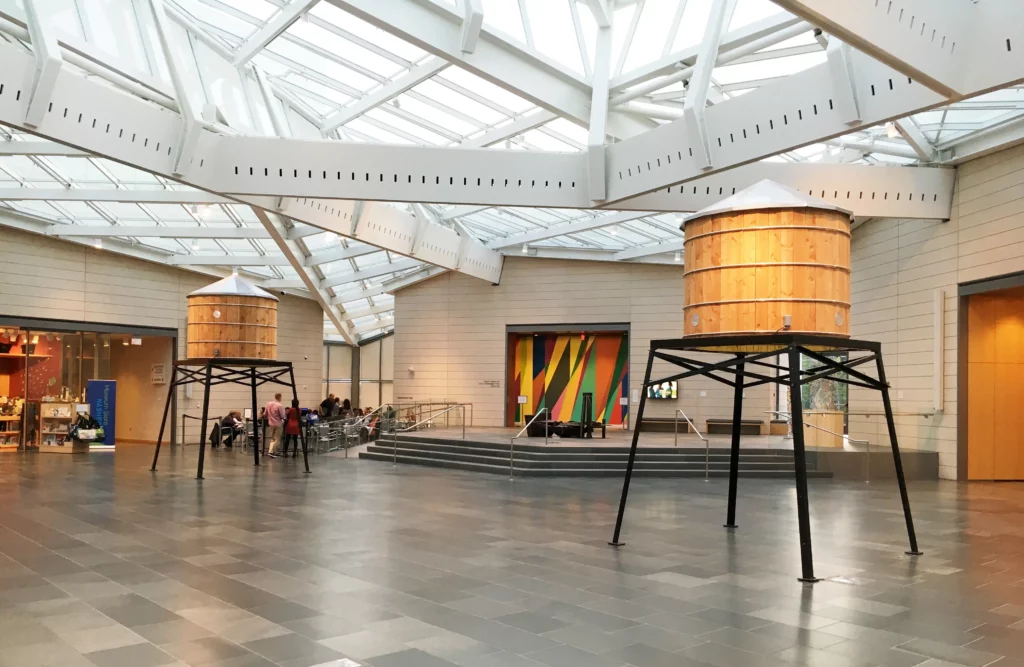
The Nasher Museum of Art, located in Durham, North Carolina, is a renowned cultural institution that enriches the community with its diverse collection, thought-provoking exhibitions, and engaging programs. Situated on the campus of Duke University, the museum holds a prominent place in the vibrant arts scene of the region.
Opened in 2005, the Nasher Museum is known for its striking architectural design, blending contemporary aesthetics with a nod to the surrounding natural environment. The museum houses an impressive collection of more than 10,000 artworks spanning a wide range of mediums, styles, and cultures. From ancient artifacts to contemporary masterpieces, the collection offers a rich tapestry of artistic expression.
The museum’s exhibitions are carefully curated to showcase diverse perspectives and push boundaries. Visitors can explore thought-provoking displays that explore social issues, cultural identity, and artistic innovation. The Nasher Museum is committed to highlighting artists from marginalized communities, fostering dialogue, and encouraging a deeper understanding of art’s role in society.
In addition to its permanent and rotating exhibitions, the Nasher Museum hosts an array of educational programs, lectures, and special events. These initiatives provide opportunities for visitors of all ages to engage with the arts, expand their knowledge, and explore their creativity. The museum’s commitment to community outreach and collaboration is evident in its partnerships with local schools, universities, and organizations.
The Nasher Museum is also a hub for artistic innovation, serving as a platform for emerging artists to showcase their work. The museum frequently collaborates with artists, curators, and scholars to present groundbreaking exhibitions and interdisciplinary projects that challenge conventional notions of art.
With its world-class collection, thought-provoking exhibitions, and commitment to education and community engagement, the Nasher Museum of Art is a cultural gem in Durham. It invites visitors to immerse themselves in the transformative power of art, encouraging dialogue, inspiring creativity, and fostering a deeper appreciation for the diverse artistic expressions that shape our world.
12. Durham Is Home To Bennett Place
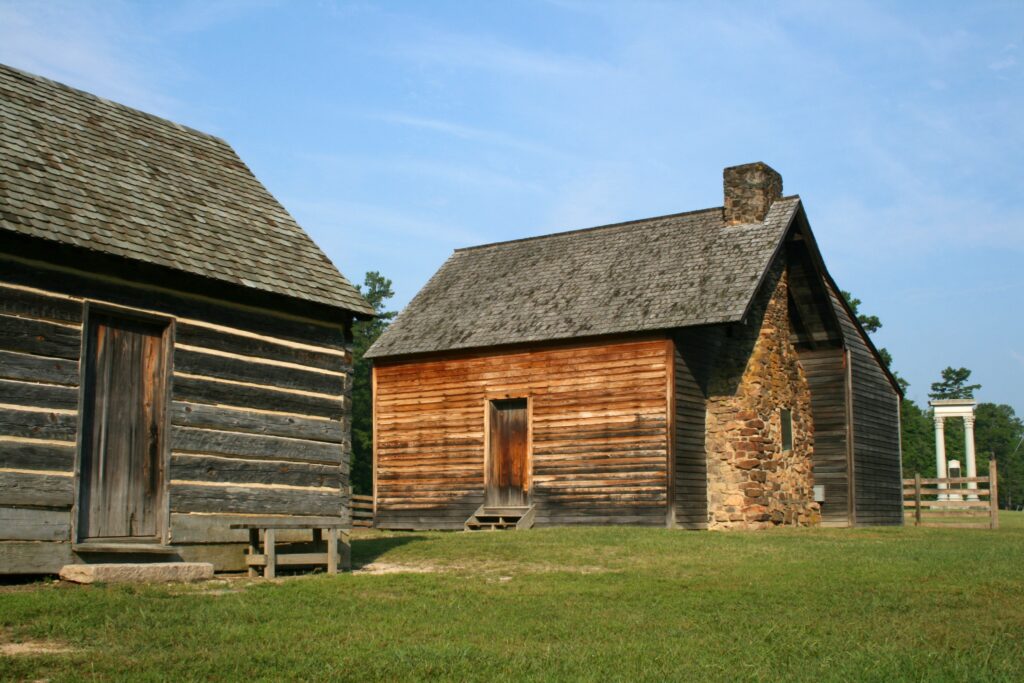
Bennett Place, located in Durham, North Carolina, is a historic site that holds significant importance as the site of the largest Confederate troop surrender during the American Civil War. The place serves as a poignant reminder of the conflict’s conclusion and the efforts made towards reconciliation and peace.
In April 1865, General Joseph E. Johnston, leading the Confederate Army, and Major General William T. Sherman, leading the Union Army, met at Bennett Place to negotiate the terms of surrender. The negotiations resulted in the Bennett Place Agreement, which effectively ended major Confederate resistance in the Carolinas, Georgia, and Florida.
Today, visitors to Bennett Place can explore the historic site and gain insights into the final days of the Civil War. The property features a reconstructed farmhouse and outbuildings that provide a glimpse into the lives of the Bennett family, who owned the property during the war. The museum on-site offers exhibits, artifacts, and interactive displays that shed light on the events that transpired during the negotiations.
The Bennett Place State Historic Site also hosts various events and programs that educate visitors about the Civil War era, including living history demonstrations, reenactments, and lectures. These activities provide a deeper understanding of the profound impact the war had on the nation and its lasting legacy.
As a testament to the significance of Bennett Place, it was designated a National Historic Landmark in 1973. The site stands as a place of reflection and remembrance, where visitors can learn about a critical moment in American history and reflect on the ongoing efforts towards unity and reconciliation.
13. Durham Is Located In The Research Triangle
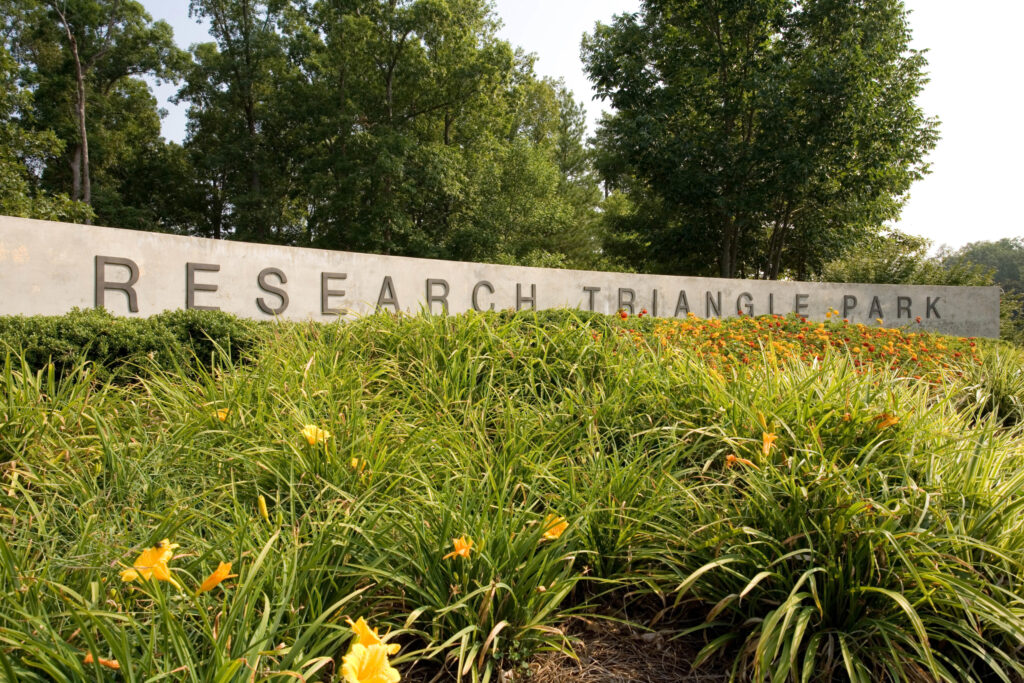
The Research Triangle, located in Durham, North Carolina, is a dynamic and globally recognized hub for scientific research, innovation, and technological advancements. Anchored by three prestigious research institutions—Duke University, the University of North Carolina at Chapel Hill, and North Carolina State University—the region has earned its name as a hotbed for cutting-edge discoveries and collaborative efforts.
With its rich concentration of top-tier universities, renowned research centers, and high-tech industries, the Research Triangle attracts leading scientists, scholars, and entrepreneurs from around the world. The region’s collaborative environment and interdisciplinary approach foster groundbreaking research across various fields, including biotechnology, pharmaceuticals, information technology, engineering, and more.
The Research Triangle Park (RTP), situated between Durham, Chapel Hill, and Raleigh, serves as the epicenter of the region’s innovation ecosystem. Spanning over 7,000 acres, RTP houses over 250 companies, ranging from startups to multinational corporations, and employs a highly skilled workforce dedicated to pushing the boundaries of knowledge and driving economic growth.
The Research Triangle offers a wealth of resources and support networks for entrepreneurs and innovators. Incubators, accelerators, and venture capital firms provide avenues for startups to thrive, while collaborative spaces and networking events facilitate knowledge sharing and idea exchange. The region’s strong emphasis on commercialization and industry partnerships facilitates the transformation of research findings into real-world applications and products.
Beyond its scientific and technological achievements, the Research Triangle boasts a high quality of life, thanks to its vibrant cultural scene, excellent healthcare facilities, and diverse communities. Residents enjoy access to world-class arts and entertainment, a thriving culinary scene, and an abundance of outdoor recreational opportunities.
As a globally recognized center of innovation, the Research Triangle continues to attract talent, investment, and recognition for its contributions to scientific advancements and economic growth. Its collaborative spirit, forward-thinking mindset, and commitment to research excellence make it a catalyst for innovation, shaping the future of industries and improving the quality of life for people worldwide.
14. Durham Is Home To Carolina Theater
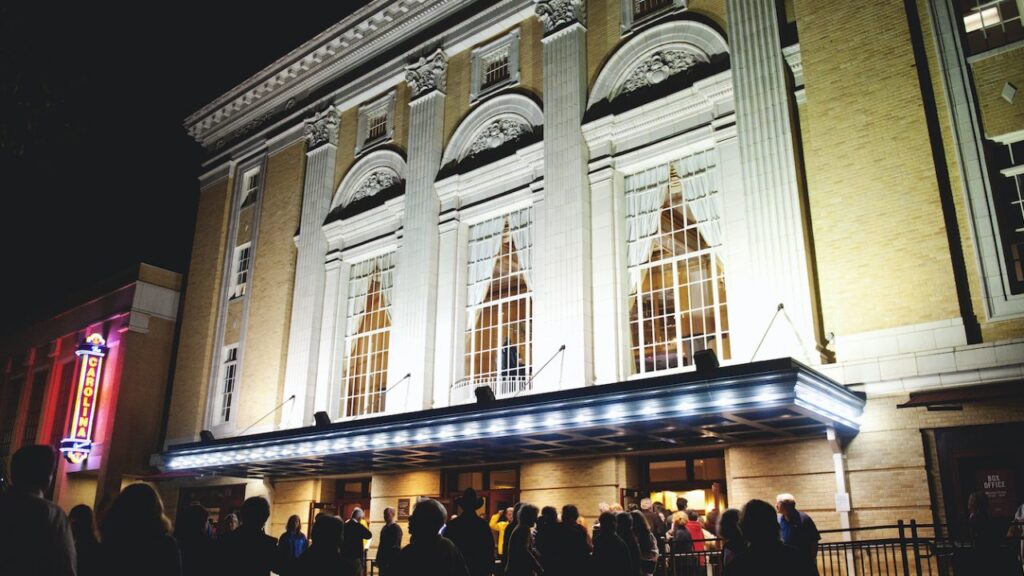
The Carolina Theater, nestled in the heart of downtown Durham, North Carolina, is a cherished cultural landmark that has been captivating audiences for nearly a century. With its elegant architecture and rich history, the theater stands as a testament to the city’s vibrant arts scene and its commitment to preserving and celebrating the performing arts.
Originally opened in 1926 as a grand movie palace, the Carolina Theater has evolved into a versatile venue that hosts a diverse range of performances, including live concerts, plays, dance shows, film screenings, and community events. The theater’s main stage, Fletcher Hall, offers a stunning setting with its ornate décor, luxurious seating, and impeccable acoustics, providing an immersive experience for both performers and audiences.
The Carolina Theater is not only a venue for entertainment but also a center for cultural enrichment and community engagement. It serves as a platform for local and internationally renowned artists to showcase their talent, fostering a vibrant arts community and promoting cross-cultural exchange. The theater also partners with local organizations to host educational programs, film festivals, and special events that bring people together and celebrate the diverse artistic expressions.
In addition to its main stage, the Carolina Theater complex features two additional screens known as Cinema One and Cinema Two, which offer an eclectic mix of independent, classic, and foreign films. These cinemas provide a unique cinematic experience, allowing movie enthusiasts to enjoy a diverse range of films in a historic and intimate setting.
The Carolina Theater’s commitment to preserving its historic charm while embracing modern artistic expressions has made it a beloved institution in Durham. Its timeless beauty, exceptional programming, and welcoming atmosphere make it a cultural gem that continues to enrich the lives of residents and visitors alike, fostering a love for the arts and contributing to the vibrancy of Durham’s cultural landscape.
15. Durham Is Home To The Durham Farmers’ Market
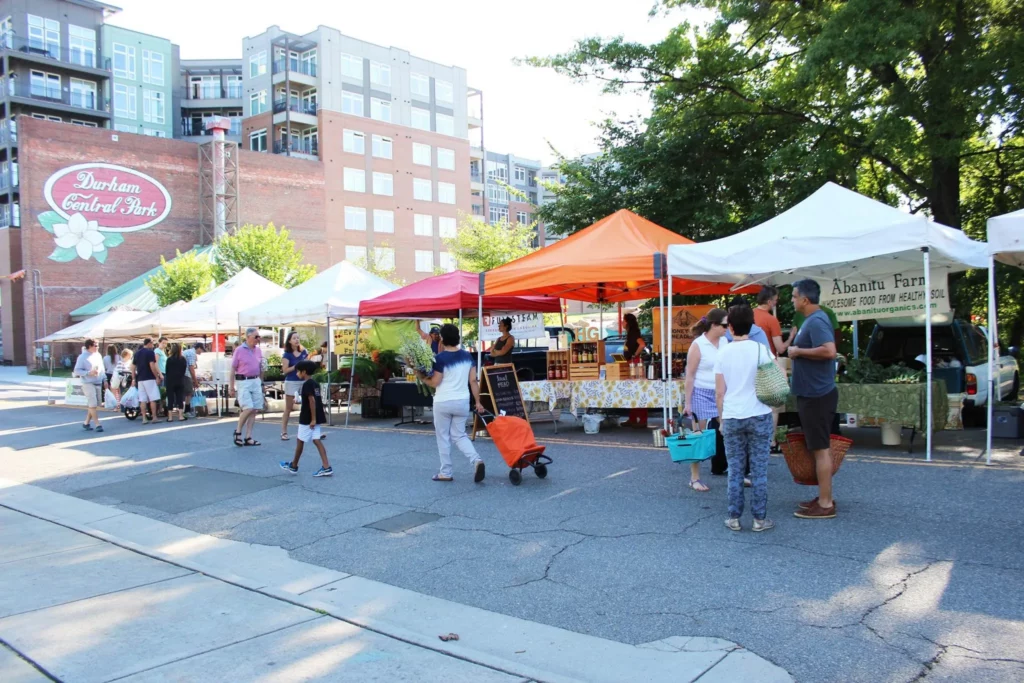
The Durham Farmers’ Market in Durham, North Carolina, is a vibrant gathering place where local farmers, artisans, and food producers come together to showcase their goods and create a thriving community. Since its establishment in 1998, the market has been a beloved destination for residents and visitors alike, providing access to fresh, locally grown produce, handcrafted products, and a lively atmosphere.
Located in the heart of downtown Durham, the farmers’ market is a celebration of the region’s agricultural heritage and commitment to sustainable farming practices. Farmers from the surrounding areas bring their bountiful harvests, offering a diverse array of fruits, vegetables, herbs, and flowers. Visitors can enjoy the flavors of each season, discovering unique varieties and savoring the taste of farm-fresh produce.
In addition to fresh produce, the market is a treasure trove of artisanal products. Local craftsmen and artisans showcase their talents, offering handmade crafts, pottery, jewelry, textiles, and more. Visitors can find one-of-a-kind treasures while supporting local artists and makers.
Beyond the abundance of fresh food and artisanal goods, the Durham Farmers’ Market is a vibrant community hub. It fosters a sense of connection and camaraderie, where neighbors and friends come together to chat, share recipes, and learn about sustainable farming practices. The market often hosts live music performances, cooking demonstrations, and educational workshops, creating a lively and enriching experience for all.
The Durham Farmers’ Market also plays a vital role in promoting food access and supporting local farmers. It accepts Supplemental Nutrition Assistance Program (SNAP) benefits, ensuring that everyone in the community has access to fresh, nutritious food. Additionally, the market offers a variety of programs and initiatives that highlight the importance of sustainable agriculture, community resilience, and environmental stewardship.
Whether you’re a food enthusiast, a supporter of local businesses, or simply seeking a vibrant community gathering, the Durham Farmers’ Market is a must-visit destination. It embodies the spirit of Durham, showcasing the region’s rich agricultural heritage, fostering community connections, and promoting a sustainable and healthy lifestyle.
16. Durham Is Home To The Eno River State Park
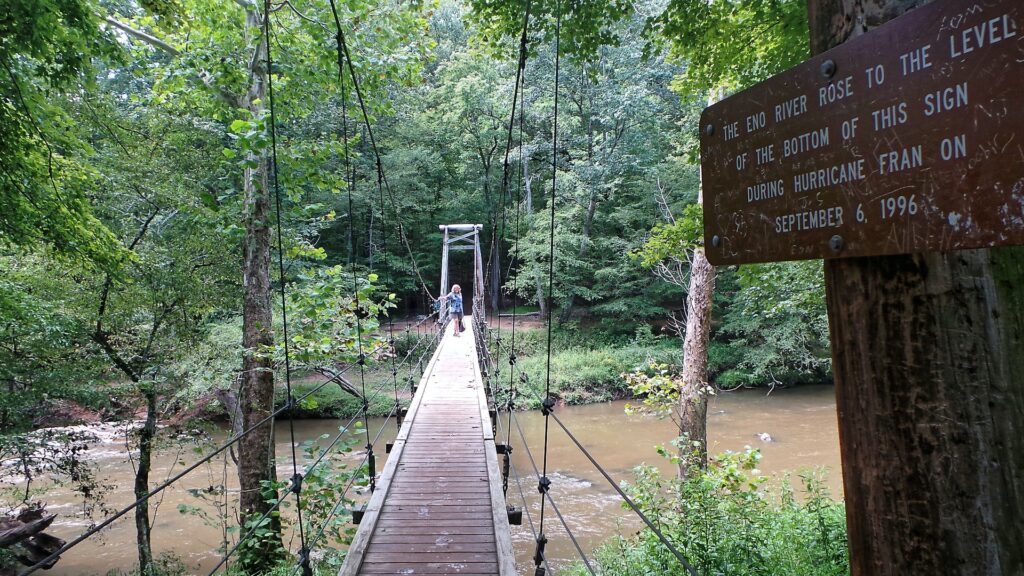
Nestled along the banks of the Eno River, Eno River State Park is a scenic natural area located just minutes from downtown Durham. Established in 1973, the park spans over 4,200 acres and is home to miles of hiking, biking, and equestrian trails that wind through hardwood forests and along river bluffs. Visitors can fish, paddle, or swim in the Eno River and its tributaries, spot wildlife like deer and pileated woodpeckers, and take in the small waterfalls throughout the park. The park also contains cultural sites like remnants of old mill villages and valleys that once operated in the area in the 19th and early 20th centuries. With its close proximity to Durham and natural beauty, Eno River State Park is a popular outdoor getaway for locals and visitors alike.
17. Durham Is Home To The Museum Of Life And Science
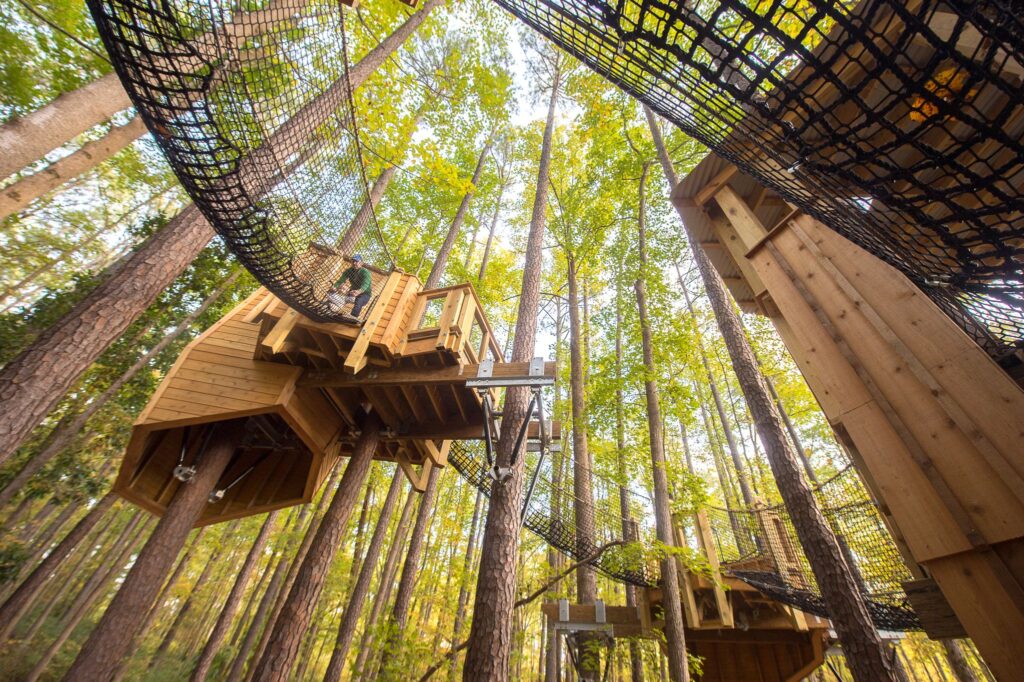
The Museum of Life and Science, located in Durham, North Carolina, is an engaging and interactive museum that delights visitors of all ages with its captivating exhibits and hands-on learning experiences. Nestled on 84 acres of beautiful outdoor space, the museum offers a unique blend of indoor and outdoor attractions, making it a favorite destination for families, educators, and science enthusiasts.
At the Museum of Life and Science, visitors can explore a diverse range of scientific disciplines, including biology, physics, chemistry, and environmental science. The museum’s interactive exhibits encourage curiosity and discovery, allowing visitors to participate in experiments, engage with live animals, and uncover the wonders of the natural world.
One of the museum’s highlights is the Butterfly House, a tropical oasis where visitors can walk amidst hundreds of free-flying butterflies, observe their life cycle, and learn about the importance of these beautiful creatures to our ecosystem. The Dinosaur Trail takes visitors on a journey through prehistoric times, with life-sized dinosaur replicas and interactive displays that bring these ancient creatures back to life.
The museum’s outdoor exhibits provide ample opportunities for exploration and adventure. The Explore the Wild exhibit takes visitors on a walk through a natural habitat, where they can encounter animals such as lemurs, red wolves, and black bears. The Magic Wings Butterfly House, located outdoors, showcases additional butterfly species and features stunning gardens that attract native pollinators.
The Museum of Life and Science also boasts a state-of-the-art Science Center, where visitors can conduct experiments, explore hands-on exhibits, and learn about scientific principles through engaging activities. From building structures with blocks to experimenting with water and magnets, the Science Center sparks curiosity and fosters a love for scientific exploration.
Throughout the year, the museum hosts a variety of special events, educational programs, and summer camps that further enhance the visitor experience. From astronomy workshops to animal encounters, these offerings provide unique opportunities for deeper learning and engagement.
The Museum of Life and Science is not only a place of discovery and education but also a sanctuary for outdoor recreation and appreciation of nature. With its expansive outdoor spaces, including nature trails, a dinosaur-themed play area, and picnic spots, visitors can connect with the natural world and enjoy quality time with loved ones.
With its interactive exhibits, engaging programs, and beautiful outdoor settings, the Museum of Life and Science offers a stimulating and fun-filled experience for visitors of all ages. It inspires a sense of wonder, fosters a love for learning, and ignites a passion for scientific exploration in a welcoming and inclusive environment.
18. Durham Is Known As “The City Of Medicine”
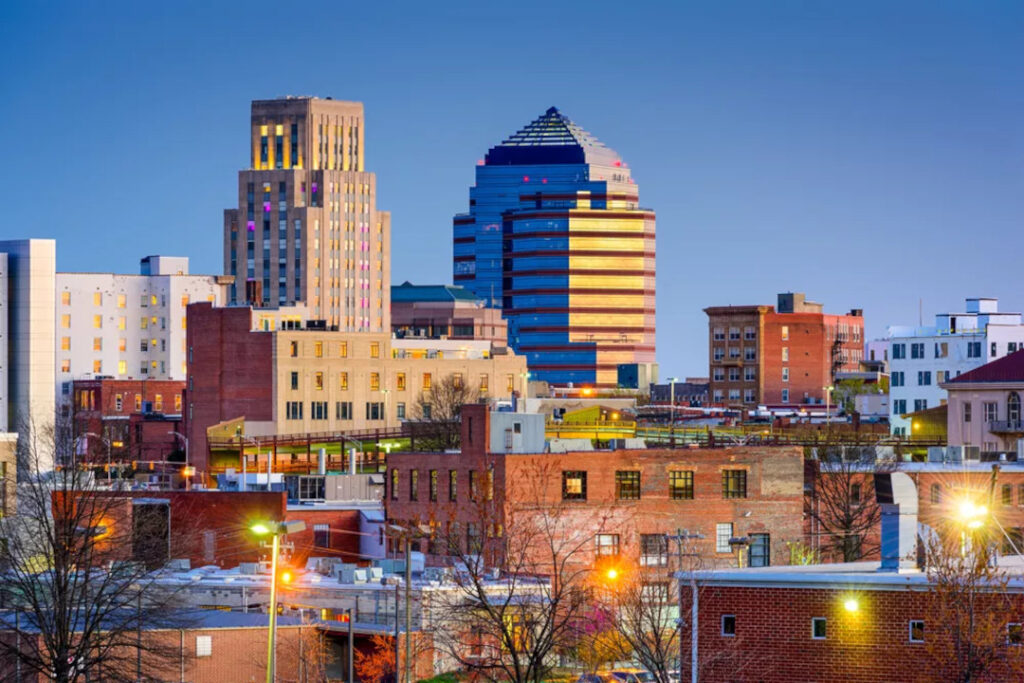
Durham, North Carolina, is often referred to as the “City of Medicine” due to its prominent role in the healthcare and medical research fields. The city has earned this distinction through its world-class medical institutions, cutting-edge research facilities, and the presence of renowned healthcare organizations.
Durham is home to the prestigious Duke University and its renowned medical school, Duke University School of Medicine. The medical school has a rich history of groundbreaking research, innovative medical advancements, and the training of exceptional healthcare professionals. Duke University Hospital, a world-renowned medical center, is consistently ranked among the top hospitals in the United States and provides comprehensive and specialized healthcare services to patients from around the world.
In addition to Duke, Durham is also home to other leading healthcare institutions, including the Duke Clinical Research Institute, which conducts groundbreaking clinical trials and research studies, and the Duke Cancer Institute, recognized for its cutting-edge cancer treatments and research.
The city’s commitment to healthcare extends beyond the walls of academic institutions. Durham is a hub for medical research and innovation, with numerous biotechnology and pharmaceutical companies located in the area. The Research Triangle Park, situated nearby, further enhances Durham’s reputation as a center for biomedical research, attracting top scientists, researchers, and entrepreneurs from around the globe.
The collaborative environment in Durham promotes interdisciplinary partnerships among academia, industry, and healthcare providers, fostering an ecosystem of innovation and discovery. This synergy has led to groundbreaking medical advancements, such as the development of life-saving drugs, pioneering surgical techniques, and breakthroughs in genomic research.
Beyond its medical institutions and research facilities, Durham boasts a thriving healthcare ecosystem that includes a robust network of clinics, specialty centers, and healthcare providers. This comprehensive healthcare infrastructure ensures that residents and visitors have access to high-quality medical care across a wide range of specialties.
With its concentration of medical expertise, cutting-edge research, and commitment to advancing healthcare, Durham has rightfully earned its moniker as the “City of Medicine.” The city’s contributions to medical science, patient care, and healthcare innovation have had a far-reaching impact, making it a hub of excellence in the field of medicine.
19. Durham Is Home To The American Dance Festival

The American Dance Festival (ADF) in Durham, North Carolina, is a vibrant and internationally renowned celebration of dance that captivates audiences, nurtures artists, and pushes the boundaries of the art form. Founded in 1934, ADF has grown into one of the world’s premier dance festivals, attracting esteemed choreographers, dancers, and dance companies from around the globe.
Each summer, the festival transforms Durham into a dynamic hub of creativity and artistic expression. The ADF presents a diverse and exciting lineup of performances, workshops, and residencies, showcasing a wide range of dance styles, including contemporary, modern, ballet, hip-hop, and traditional forms from different cultures.
Renowned choreographers and dance companies present their innovative works on the stages of Durham’s acclaimed performing arts venues, captivating audiences with their creativity, athleticism, and emotional depth. From exhilarating group performances to intimate solos, each dance piece tells a unique story and evokes powerful emotions, transcending language barriers and connecting people through the universal language of movement.
In addition to the exceptional performances, the American Dance Festival offers a wealth of educational and professional development opportunities. Dancers, choreographers, and dance enthusiasts from around the world gather in Durham to participate in workshops, master classes, and seminars led by industry leaders. These immersive experiences provide invaluable training, foster artistic growth, and promote cross-cultural exchange.
The festival’s commitment to nurturing emerging talent is evident in its support of young dancers and choreographers through its renowned ADF School and Hollins University M.F.A. program. The ADF School offers a rigorous summer training program for aspiring dancers of all ages and levels, while the M.F.A. program provides a platform for emerging choreographers to develop their artistic voices and refine their craft.
The American Dance Festival’s impact extends beyond the summer season, as it continues to foster a vibrant dance community in Durham throughout the year. ADF’s commitment to accessibility and community engagement is exemplified through its outreach programs, which bring dance performances and educational activities to schools, community centers, and underserved populations.
With its rich history, dedication to artistic excellence, and unwavering commitment to the transformative power of dance, the American Dance Festival has firmly established Durham as a global epicenter for the art form. It celebrates the diversity of dance, encourages artistic exploration, and inspires audiences and artists alike to embrace the joy and transformative potential of movement.
20. Durham Is Home To The Durham Symphony Orchestra
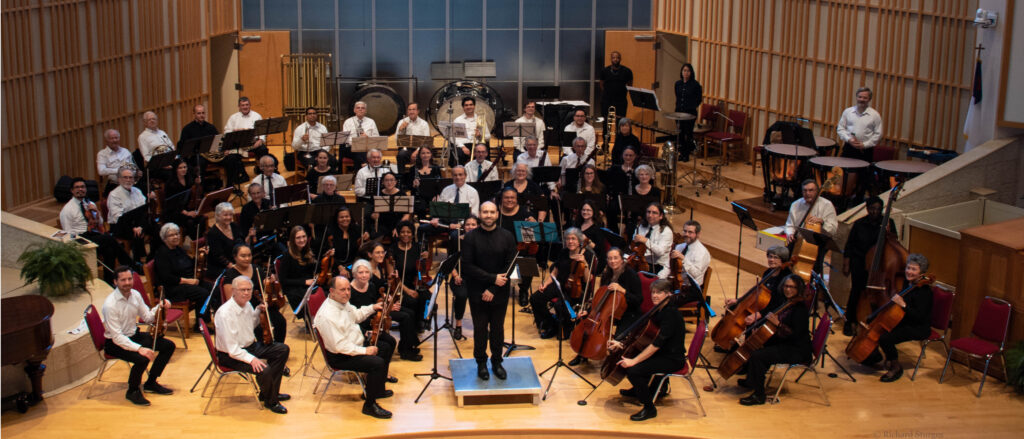
The Durham Symphony Orchestra is a cherished cultural institution in Durham, North Carolina, known for its exceptional musical performances and commitment to enriching the community through the power of orchestral music. Founded in 1976, the orchestra has become a cornerstone of the local arts scene, captivating audiences with its captivating concerts and fostering a love for classical music.
Comprised of talented musicians, many of whom are professional musicians, faculty members, or advanced students, the Durham Symphony Orchestra showcases a diverse repertoire that spans classical masterpieces, contemporary compositions, and popular orchestral favorites. Under the skilled direction of its music director and conductor, the orchestra delivers captivating and emotionally stirring performances that leave audiences spellbound.
The Durham Symphony Orchestra is not only known for its artistic excellence but also for its commitment to accessibility and community engagement. The orchestra actively collaborates with local schools, community organizations, and other arts institutions to provide educational programs, outreach concerts, and interactive workshops. These initiatives aim to inspire and educate young musicians, introduce orchestral music to diverse audiences, and foster a lifelong appreciation for the arts.
Throughout the year, the Durham Symphony Orchestra presents a variety of concerts and special events, including traditional symphonic performances, pops concerts, holiday-themed shows, and collaborative performances with guest artists and local choirs. These performances are held at renowned venues in Durham, creating a vibrant and enriching cultural experience for the community.
In addition to its regular concert series, the orchestra actively engages in collaborative projects and partnerships with other local arts organizations, further enhancing the cultural landscape of Durham. By uniting with dance companies, theater groups, and visual artists, the Durham Symphony Orchestra pushes the boundaries of orchestral music and embraces innovative and interdisciplinary performances.
The Durham Symphony Orchestra’s dedication to artistic excellence, community outreach, and musical education has made it an integral part of the Durham community. Through its passionate performances, collaborative spirit, and commitment to nurturing the next generation of musicians, the orchestra continues to inspire, uplift, and unite audiences, creating a vibrant and thriving musical community in Durham.
21. Durham Is Home To The Hayti Heritage Center
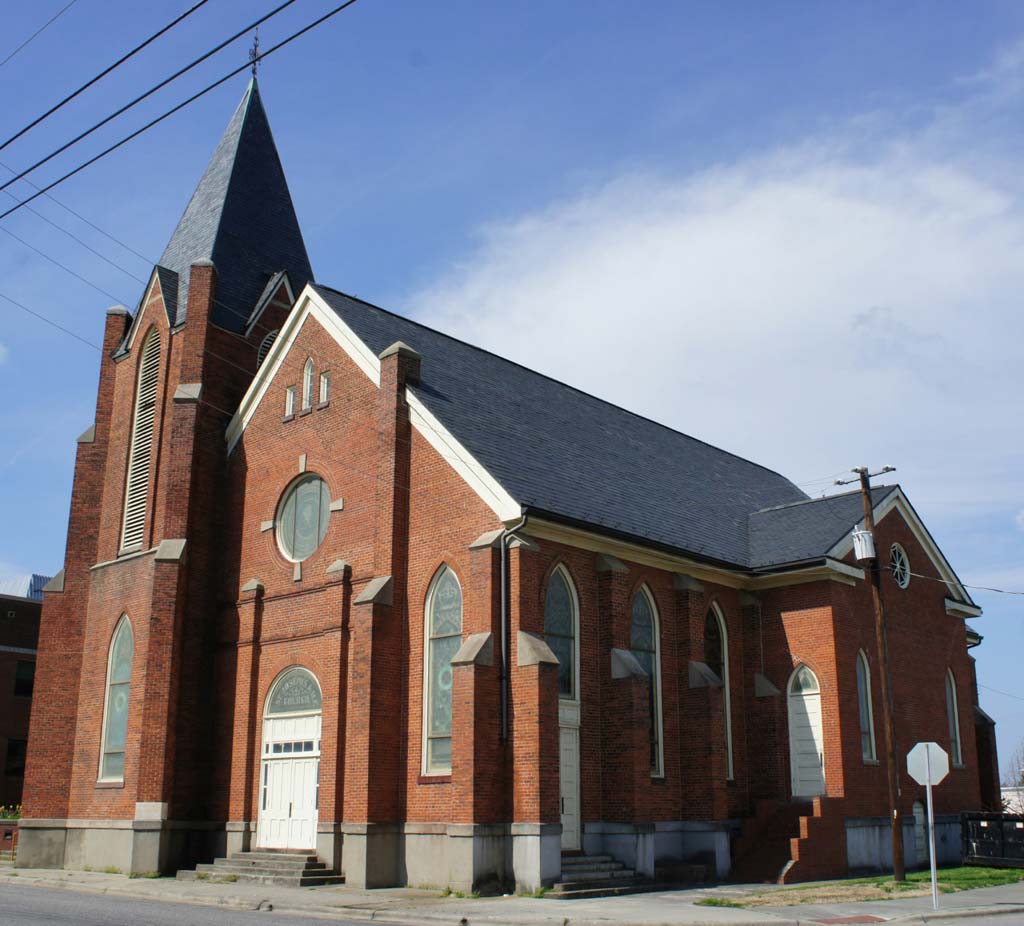
The Hayti Heritage Center in Durham, North Carolina, is a cultural gem that celebrates the rich history, heritage, and contributions of African Americans in the region. Housed in the beautifully restored St. Joseph’s African Methodist Episcopal Church, the center stands as a testament to resilience, community, and the power of preserving cultural legacies.
The Hayti Heritage Center offers a variety of engaging programs, exhibitions, and performances that highlight the vibrant African American experience. Visitors can explore thought-provoking exhibits that delve into the history of the Hayti District, once a thriving African American business and cultural hub. These exhibits shed light on the achievements, struggles, and triumphs of the local African American community, showcasing their significant contributions to Durham’s development.
Through a diverse range of artistic and cultural events, the center nurtures and promotes the African American arts. Visitors can enjoy concerts, plays, dance performances, poetry readings, and film screenings that showcase the talents and creativity of African American artists, both local and national. These events provide a platform for artists to express their voices and stories, fostering a deeper understanding and appreciation of African American culture.
The Hayti Heritage Center also serves as a hub for community engagement, offering educational programs, workshops, and lectures that explore African American history, social justice issues, and cultural traditions. The center’s commitment to youth empowerment is evident through its youth programs, which provide artistic and educational opportunities for young people to discover and develop their talents.
Beyond its cultural offerings, the center is a gathering place that fosters connections and dialogue among people from diverse backgrounds. It hosts community events, discussions, and celebrations, bringing together individuals and organizations to promote unity, understanding, and social change.
The Hayti Heritage Center stands as a beacon of cultural preservation, education, and inspiration in Durham. It honors the past, celebrates the present, and looks towards a future where the African American community’s contributions are recognized, celebrated, and integrated into the fabric of the city’s cultural landscape. Through its dynamic programming and commitment to fostering understanding and unity, the center continues to be a cherished resource for the community and a testament to the power of preserving and sharing cultural heritage.
Whether you’re a history buff, a food lover, a nature enthusiast, or a forward-thinking entrepreneur, Durham has something to offer everyone. Its unique blend of heritage, culture, and innovation make it a captivating city with endless possibilities. Durham is a great city to live and visit, with a lot of history, culture, and fun activities to enjoy.
Discover more from City Towner
Subscribe to get the latest posts sent to your email.

